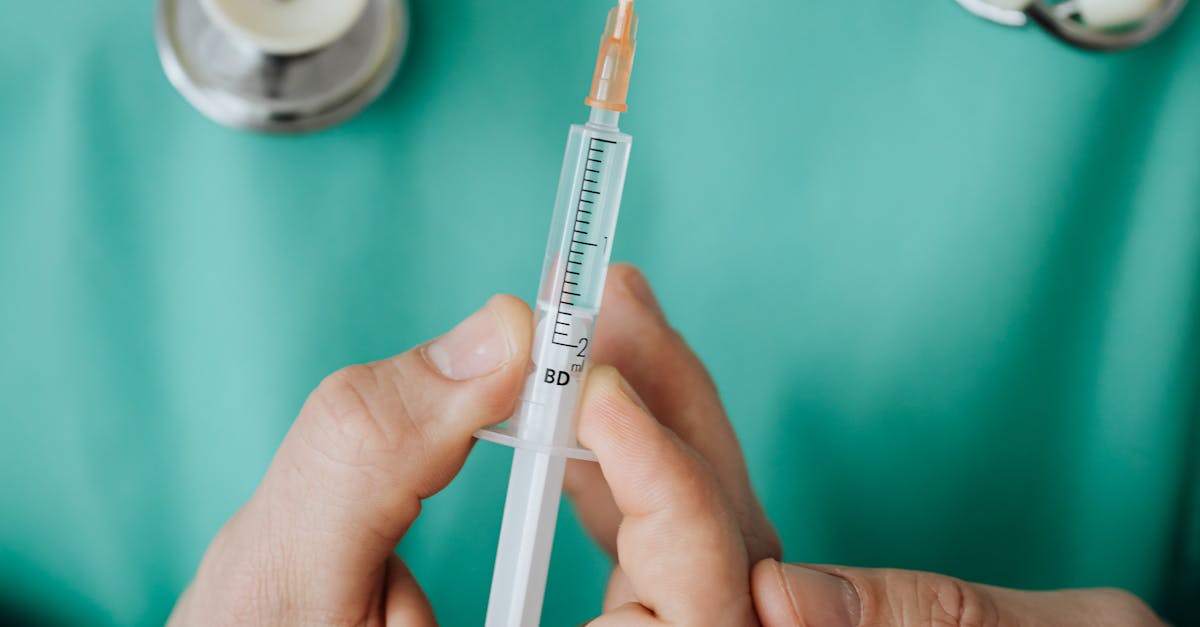
Table Of Contents
Role of Primary Care Providers in Urgent Situations
When faced with a sudden health issue, individuals often wonder about the role of primary care providers in urgent situations. Primary care physicians play a crucial role in managing a wide range of medical needs promptly and efficiently. While primary care providers may not always be available at a moment's notice, many practices offer same-day appointments or have designated slots for urgent cases to address patients' immediate concerns. This approach helps ensure continuity of care and encourages patients to seek assistance from familiar medical professionals rather than relying solely on Emergency Care near me.
Moreover, primary care providers are well-equipped to handle common urgent medical issues such as minor injuries, infections, or exacerbations of chronic conditions. By establishing a relationship with a primary care physician, individuals can benefit from personalized care plans tailored to their specific needs. Furthermore, primary care providers serve as gatekeepers to the healthcare system, helping patients navigate the complexities of medical care and directing them to appropriate resources when necessary. This proactive approach promotes preventative care and early intervention, ultimately leading to better health outcomes for individuals.
Coordinating Care Between Primary and Urgent Care Services
Coordinating care between primary care providers and urgent care services is crucial in ensuring efficient and effective healthcare delivery. By establishing clear communication channels and sharing patient information, these two entities can work together seamlessly to provide comprehensive care. When patients require immediate attention that goes beyond what primary care can offer, urgent care facilities can step in to bridge the gap. This coordination helps in streamlining the patient's medical journey and ensures that necessary follow-up care is provided.
When faced with a medical issue that requires urgent attention, knowing where to find "Emergency Care near me" is essential. These services play a vital role in addressing severe conditions promptly. By establishing a collaborative relationship between primary care providers and urgent care facilities, patients can receive the right level of care at the right time. This coordination not only benefits patients in need but also optimizes the healthcare system's resources by directing individuals to the most appropriate care setting based on their medical needs.
Utilization of Emergency Rooms for Critical Situations
Emergency Rooms are designed to handle critical medical situations that require immediate attention. Patients who are experiencing life-threatening conditions such as heart attacks, severe injuries, or uncontrolled bleeding should seek care at an Emergency Room right away. These facilities are staffed with specialized healthcare providers and equipped with advanced technology to address critical situations promptly and effectively. When in doubt about the severity of a medical condition, it is essential to prioritize seeking care at an Emergency Room for evaluation and treatment. In urgent situations, quick access to an Emergency Room by searching "Emergency Care near me" can make a significant difference in outcomes, ensuring that critical conditions are managed appropriately and swiftly. Being proactive in accessing emergency services can potentially save lives and prevent the escalation of medical emergencies.
In Emergency Rooms, medical personnel are trained to assess and stabilize patients quickly when faced with critical conditions. Patients can receive timely interventions such as diagnostic testing, medications, and emergency procedures to address life-threatening situations. It is crucial to remain calm and follow the instructions of healthcare providers in the Emergency Room to optimize the care received. Utilizing the Emergency Room for critical situations allows patients to access immediate medical attention around the clock, ensuring that urgent medical needs are met promptly and efficiently. Remember, in emergencies, time is of the essence, and seeking care at an Emergency Room is vital for managing critical conditions effectively.
Determining When Emergency Care is Necessary
Determining when emergency care is necessary can be a critical decision in ensuring prompt and appropriate medical attention. Complications such as sudden and severe chest pain, difficulty breathing, or uncontrolled bleeding warrant immediate evaluation in an emergency room setting. If facing a situation that could potentially be life-threatening or requires urgent medical intervention, seeking "Emergency Care near me" becomes imperative. It is crucial not to delay seeking medical help in such instances to prevent exacerbation of the condition.
Symptoms like sudden numbness in the face or limbs, confusion or difficulty speaking, and severe abdominal pain should not be overlooked when considering the need for emergency care. In cases where there is uncertainty about the severity of the medical concern, it is advisable to err on the side of caution and seek evaluation at an emergency room. Remember that swift medical attention can make a significant difference in outcomes for conditions that necessitate urgent care.
Managing NonLifeThreatening Medical Concerns
Managing non-life-threatening medical concerns is a common reason individuals seek urgent care services. With issues such as minor injuries, fevers, earaches, or minor infections, individuals often opt for urgent care facilities for prompt and efficient treatment. When experiencing such medical issues, patients can conveniently search for "Emergency Care near me" to locate urgent care centers that can address their non-life-threatening needs promptly.
By visiting urgent care centers for non-life-threatening medical concerns, individuals can bypass the often lengthy wait times in emergency rooms. Urgent care facilities are equipped to handle a wide range of medical issues efficiently, providing patients with quick access to medical professionals without compromising on quality care. Moreover, for those with busy schedules or seeking immediate medical attention for minor ailments, urgent care centers offer a convenient alternative to emergency rooms, ensuring timely treatment for non-emergency situations.
Strategies for Addressing Urgent Medical Needs
When faced with urgent medical needs, it is essential to promptly seek out care that can address the issue effectively. To manage urgent medical concerns, individuals can first consult their primary care provider for guidance on the appropriate course of action. If the situation requires immediate attention and it is outside regular office hours, urgent care centers can provide swift medical assistance. Many urgent care centers offer extended hours and walk-in appointments for convenience. They can cater to a variety of urgent medical needs, from minor injuries to sudden illnesses. When in doubt, a quick search for "Emergency Care near me" can help locate the closest urgent care facility for timely assistance.
FAQS
What is urgent care?
Urgent care is medical care provided for non-life-threatening conditions that require immediate attention but do not rise to the level of an emergency.
What is emergency care?
Emergency care is medical care provided for serious, life-threatening conditions that require immediate treatment to prevent death or disability.
How do I know whether to go to urgent care or the emergency room?
If your condition is not life-threatening but needs immediate attention, such as a minor fracture or a bad cold, you should go to urgent care. If you are experiencing symptoms of a heart attack, stroke, severe bleeding, or other life-threatening conditions, you should go to the emergency room.
Can urgent care centers handle medical emergencies?
Urgent care centers are equipped to handle a wide range of medical issues, but they are not equipped to handle life-threatening emergencies. In such cases, it is important to go directly to the emergency room.
What are some examples of conditions that are typically treated in urgent care?
Conditions commonly treated in urgent care include minor injuries, infections, flu symptoms, minor burns, and other non-life-threatening medical concerns.


